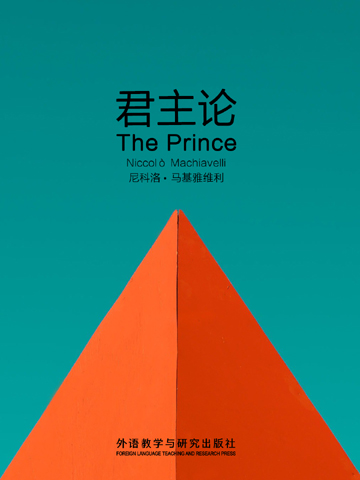人类历史上第一部政治禁书,世界近代政治学之开端。
《君主论》较为完整地阐述了马基雅维利的君主专制理论和君王权术论。内容包括对佛罗伦萨乃至整个意大利几百年间的“政治实验和激烈变革”以及马基雅维利本人多年从政经验的理论性总结。作者摒弃了中世纪教条式推理方法,从历史经验角度出发,以“人性本恶”的基本假设为依据,认为国家的产生是出于人性本身的需要,并不是上帝的意志,从而否认了君权神授。
The prince mainly discusses how to be a prince based on the theoretical summary of the political changes in Italy over the centuries and Machiavelli’s own experience in politics. It is sometimes claimed to be one of he first works of modern philosophy, especially modern political philosophy, in which the “effectual” truth is taken to be more important than any abstract ideal.
- 献词
- 第一章 君主国种类及建国方法
- 第二章 关于继承的君主国
- 第三章 关于混合君主制
- 第四章 大流士的王国被亚历山大征服,为什么没有在亚历山大去世后反叛其继任者
- 第五章 统治被征服以前独立自治的城邦或王国的方式
- 第六章 依靠自己的军队和能力获取的新君主国
- 第七章 通过他人武力或运气取得的新君主国
- 第八章 依靠邪恶手段成为君主
- 第九章 公民君主国
- 第十章 关于衡量君主国国力
- 第十一章 教会君主国
- 第十二章 军队类型和佣军
- 第十三章 外籍援军,混合军和国民军
- 第十四章 关于君主的治军之道
- 第十五章 世人尤其是君主受赞扬或贬责的原因
- 第十六章 慷慨还是吝啬
- 第十七章 残酷与仁慈,受人爱戴和受人敬畏哪个更好
- 第十八章 君主应怎样保持诚信
- 第十九章 君主应避免被憎恨和厌恶
- 第二十章 堡垒和君主常用的其他措施是有利的吗?
- 第二十一章 君主如何取得名望
- 第二十二章 君主的大臣
- 第二十三章 如何避开奉承者
- 第二十四章 意大利的君主们丢失了政权
- 第二十五章 运气如何影响世事及如何抗衡运气
- 第二十六章 为意大利免受蛮人之害进言
- Dedication
- Chapter 1 Howmany kinds of principalities there are, and by what means they are acquired
- Chapter 2 Concerning hereditary principalities
- Chapter 3 Concerning mied principalities
- Chapter 4 Why the Kingdom of Darius, conquered by Alexander, did not rebel against the successors of Alexander at his death
- Chapter 5 Concerning the way to govern cities or principalities which lived under their own laws before they were annexed
- Chapter 6 Concerning new principalities which are acquired by one'sown arms and ability
- Chapter 7 Concerning new principalities which are acquired either by the arms of others or by good fortune
- Chapter 8 Concerning those who have obtained a principality by wickedness
- Chapter 9 Concerning a civil principality
- Chapter 10 Concerning the way in which the strength of all principalities ought to be measured
- Chapter 11 Concerning ecclesiastical principalities
- Chapter 12 How many kinds of soldiery there are, and concerning mercenaries
- Chapter 13 Concerning auxiliaries, mixed soldiery, and one's own
- Chapter 14 That which concerns a prince on the subject of the art of war
- Chapter 15 Concerning things for which men, and especially princes, are praised or blamed
- Chapter 16 Concerning liberality and meanness
- Chapter 17 Concerning cruelty and clemency, and whether it is better to be loved than feared
- Chapter 18 Concerning the way in which Princes should keep Faith
- Chapter 19 That one should avoid being despised and hated
- Chapter 20 Are fortresses, and many other things to which Princes often resort, advantageous or hurtful?
- Chapter 21 How a Prince should conduct himself so as to gain renown
- Chapter 22 Concerning the secretaries of Princes
- Chapter 23 How Flatterers should be avoided
- Chapter 24 The Princes of Italy have lost their states
- Chapter 25 What fortune can effect in human affairs, and how to withstand her
- Chapter 26 An exhortation to liberate Italy from the Barbarians
- 书评 写书评
- 笔记
-
书评加载中...



20141029150519282424.jpg)





20141029151058599880.jpg)








(英文版)20190404015230506970.jpg)




 京公网安备 11010802032529号
京公网安备 11010802032529号
笔记加载中...